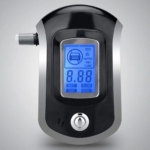Police Cannot Search Private Cell Phone Data Without a Warrant
The police may not access cell phone information, even when seized at the time of an arrest, without first securing a warrant. Today the United State Supreme Court ruled to protect the privacy interests of citizens and held that the Fourth Amendment protects cellphone data. Riley v California. The police arrested Riley on a weapons charge and then accessed his phone, viewed his call log , and used the information obtained to seek a warrant for a drug raid. The Court gave, as one of its reasons, that technology existed within police that allowed them to recover data even after a phone might be “scrubbed” clean. It was also concerned with unjustified intrusions into the vast quantity of personal data stored on phone for many years. It’s not that the police can’t obtain information form cell phones, they just have to go through the warrant process to justify their suspicions, establish their immediate need for the information and limit the extent of their searches into highly private information.


